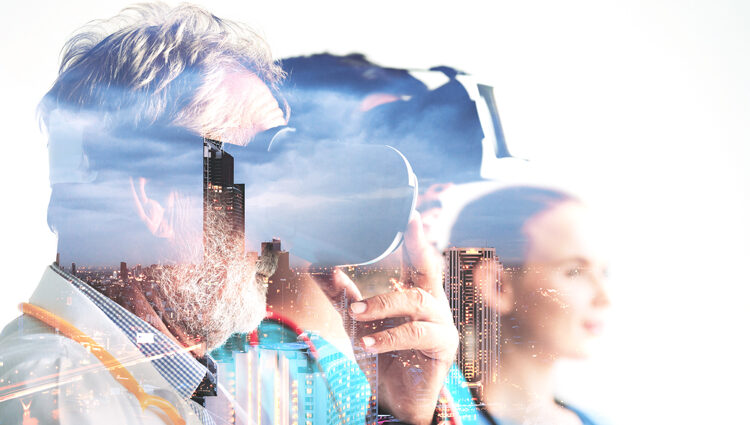The demand for disruptive technology in healthcare is growing. A rising number of elderly individuals to care for in the modern landscape, combined with the rapid proliferation of new diseases has placed healthcare professionals under significant pressure. We need access to new, skilled professionals as quickly as possible to continue protecting patients.
UConn Health, a company dedicated to helping people maintain healthy lives, believes VR could be the answer to a number of healthcare training problems.
To solve the increasing demand for educated and skilled medical professionals in the new world, UConn Health partnered with Oculus for Business – the leading solution for VR hardware from Meta. Here’s what happened when the two companies worked together.
The Demand for more Immersive Training
According to Dr. Augustus Mazzocca, a professional who helps to train doctors in orthopaedic surgery practices at UConn Health, not all surgeons take to their skills naturally.
Like with any professional, some people don’t immediately grasp the techniques required for surgery in this area. When this happens, consistent practice is crucial.
Mazzocca notes that when a surgeon is struggling, it’s usually a good idea to have them practice a technique as many times as possible until they eventually develop the skill.
In the past, this has meant allowing training doctors access to actual operating rooms where they can practice their skills on cadavers.
However, training in this format can be an expensive, inefficient, and time-consuming process. Doctors in training can also complete certain procedures on a cadaver once.
Ultimately, a more flexible solution is necessary to help develop the skills professionals need. In 2019, the UConn Orthopaedic department discovered the PrecisionOS software company, and began their journey towards a more innovative future.
PrecisionOS creates immersive VR experiences for surgical training, specifically in orthopaedics. Founded by an orthopaedic surgeon and educator, as well as two veteran game developers, PrecisionOS offers medical-level VR training and educational modules to help surgeons practice essential procedures in a safe environment. The software leverages the affordable and efficient technology of the Oculus Quest headset for training.
Bringing VR into Orthopaedic Training
According to Dr. Danny Goel, the founder of Precision OS, the purpose of the company is to make teaching and learning through virtual reality as realistic and valuable as possible, in a low-risk and safe environment.
This means the company is pushing the boundaries of simulation during the operational experience in virtual reality. The Oculus Quest headset was essential to helping Precision OS achieve its lofty goals.
Where other headsets have been complicated and expensive in the past, the Quest offers a highly mobile and effective experience, with six degrees of freedom, and amazing visuals.
In a study conducted by the Precision OS and CSES group, senior surgical doctors who trained with VR technology learned up to 570% faster than those using traditional learning methods.
Dr. Mazzocca of the UConn Health group, like many professionals, was originally sceptical of VR, from the moment he put on the Oculus Quest Headset.
He noted his body adjusted very quickly to the experience, and he was able to feel as though he was really working in and walking through a new environment. Mazzocca also commended the high-quality visuals of the PrecisionOS system, and how the software mimicked the real-world perfectly.
How VR Transformed UConn Health
For the UConn Health team, VR with the Oculus Quest headset and Precision OS represented a powerful breakthrough, allowing doctors in training to engage in more purposeful practice activities. Surgeons could identify the skills they needed to work on effectively and practice them multiple times without the need for excess expense.
The technology also comes with a double-loop learning system which allows doctors in training to make mistakes and receive feedback to help them avoid issues in their next attempt.
According to Mazzocca, the team were thrilled to learn they could go over entire cases multiple times, and supervisors can also log into the software through a computer. This allows managers and supervisors to see what the doctors in training are seeing and assess their learning strategy.
Through VR training, doctors can train to hone their spatial awareness, as they learn how to position the X-Ray, reduce the fracture, and get the appropriate view to place the pin in just the right position.
These are all crucial skills that professionals in the landscape need to master so they can proceed with cases in a “reproducible” format.
Continued VR Training in any Situation
According to UConn Health, the introduction of virtual training solutions was particularly useful during the COVID-19 outbreak. A few months into 2020, the group was forced to suspend elective surgeries due to the outbreak.
While this reduced the real-life training opportunities for many doctors and surgeons, they could still keep up with their skill management by practicing in VR.
Dr. Mazzocca from UConn Health now believes VR will have a direct positive influence on patient outcomes in the orthopaedic field. According to Mazzocca, it only makes sense that surgeons will load various scans into VR and see where a deformity might be in a diseased joint or discover how to reduce a fracture.
Dr. Mazzocca also believes VR will help to improve surgical training efforts in areas of the world where cadavers are no longer used for surgeon education.
Today’s medical professionals will be able to approach a more ethically manageable, and inexpensive way to practice a number of different skills over and over – without waste.
After working with Oculus and the Precision OS team, UConn Health now believes we’re only just beginning to scratch the surface of what virtual reality devices can realistically do.
The case study offers an excellent insight into how immersive experiences can really transform the way teams work on a daily basis.

